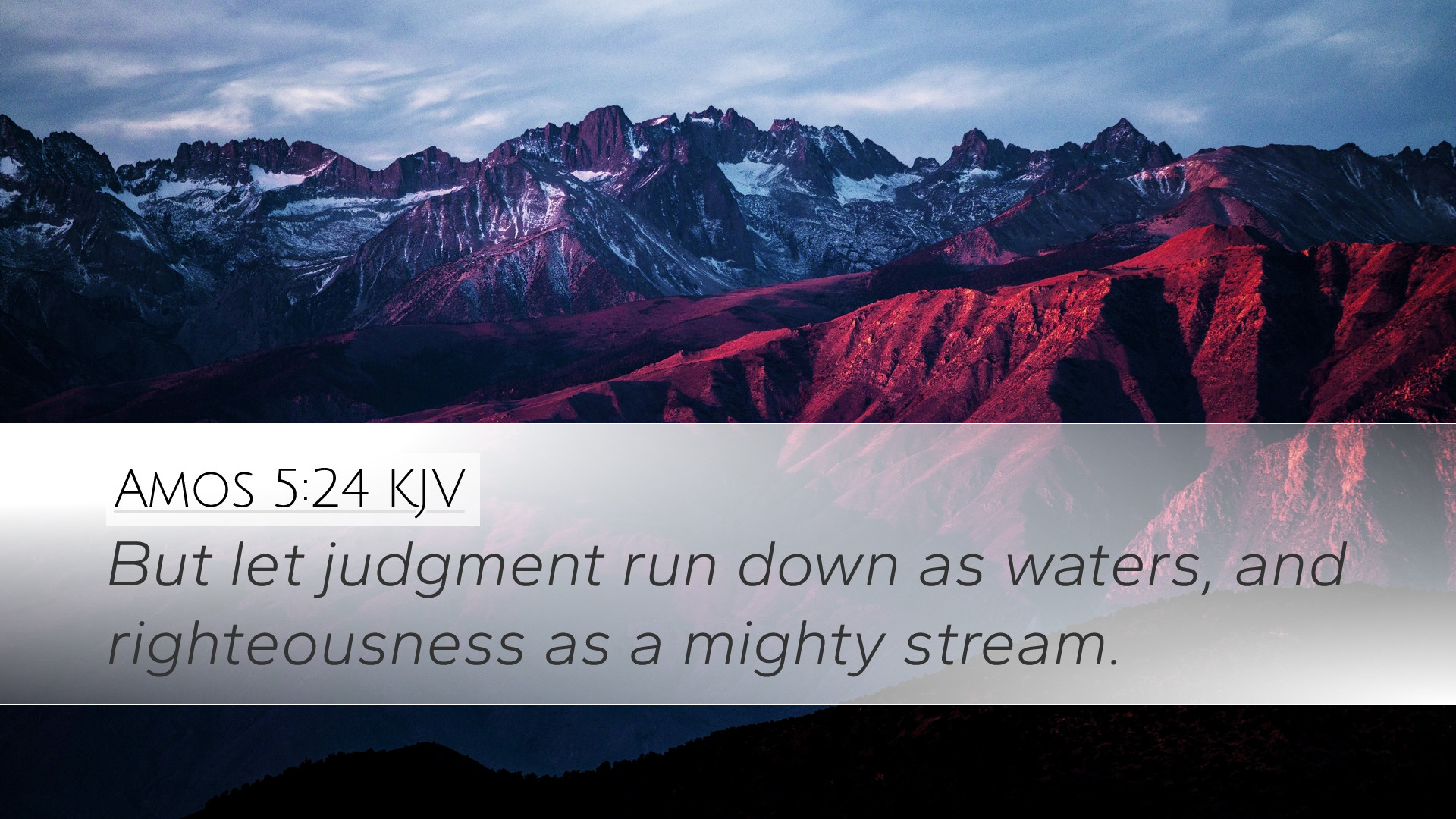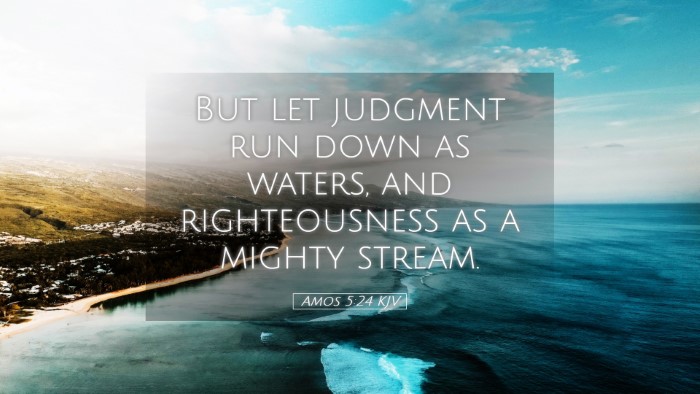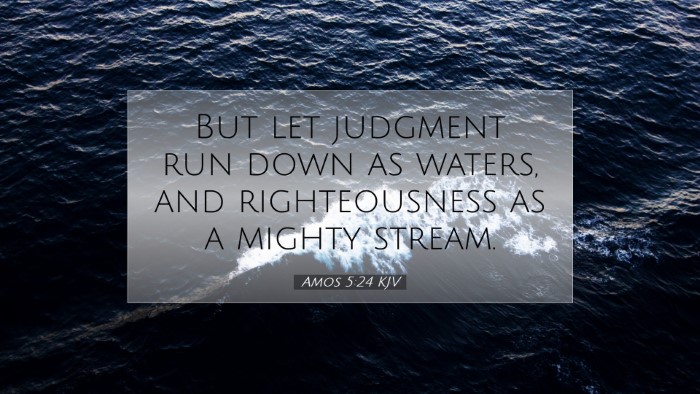Old Testament
Genesis Exodus Leviticus Numbers Deuteronomy Joshua Judges Ruth 1 Samuel 2 Samuel 1 Kings 2 Kings 1 Chronicles 2 Chronicles Ezra Nehemiah Esther Job Psalms Proverbs Ecclesiastes Song of Solomon Isaiah Jeremiah Lamentations Ezekiel Daniel Hosea Joel Amos Obadiah Jonah Micah Nahum Habakkuk Zephaniah Haggai Zechariah MalachiAmos 5:24
Amos 5:24 KJV
But let judgment run down as waters, and righteousness as a mighty stream.
Amos 5:24 Bible Commentary
Amos 5:24 - A Call for Justice and Righteousness
Amos 5:24 states: "But let justice roll on like a river, righteousness like a never-failing stream!" This verse encapsulates the profound message of the prophet Amos concerning divine expectations for justice and moral integrity within society. In understanding this command, theologians and scholars will recognize its implications for both ancient Israel and contemporary applications.
Contextual Background
The Book of Amos, written during a period of prosperity for Israel, highlights the stark contrast between the nation’s social injustices and the prophetic call for ethical purity. The surrounding chapters emphasize God’s displeasure with empty rituals devoid of true worship and the systemic injustices faced by the poor and marginalized. As we delve into verse 24, it's essential to reflect on the historical and cultural context that shaped Amos’s powerful utterance.
Exegesis of Amos 5:24
This verse serves as a pivotal exhortation urging Israel to embrace justice and righteousness. The imagery of a river and a stream signifies abundance and continuity. Here are elucidations from various public domain commentaries:
-
Matthew Henry's Commentary:
Henry highlights that the metaphor of justice rolling like a river indicates a relentless and overflowing nature. Just as a river cannot be contained, so should justice be pervasive and unstoppable in society. Furthermore, righteousness is compared to a 'never-failing stream,' suggesting its essential and sustaining character in human relationships.
-
Albert Barnes' Notes:
Barnes elucidates that this verse addresses the hypocrisy prevalent in Israel, where worship practices did not translate into ethical behavior. He emphasizes that mere religious observance is inadequate; true worship manifests through justice and morality. The call for justice not only involves legal fairness but a deeply ingrained principle of compassion and integrity within society.
-
Adam Clarke's Commentary:
Clarke points out the significance of the continuity implied in 'never-failing stream.' He interprets this as a divine promise that God’s standards of righteousness will not waver. This constancy serves as a contrast to the fleeting nature of human morality, reinforcing the need for societies to adhere to eternal truths as laid out in God's laws.
Theological Implications
The verse has robust theological implications regarding God's character and His relationship to humanity. It points fundamentally to:
- Divine Justice:
God, in His essence, is just, and His expectations for humanity reflect this attribute. The demand for justice is not merely a social concern but a reflection of God’s nature.
- Righteousness as a Non-Negotiable:
Righteousness is presented as essential to God’s covenant community, necessitating that believers actively pursue ethical living as an expression of their faith.
- Corporate Responsibility:
This passage implies that justice is not merely an individual pursuit but a corporate responsibility. Communities and nations are called to uphold justice and righteousness as a collective moral obligation.
Modern Applications
In a contemporary context, the call for justice and righteousness remains profoundly relevant. The message of Amos can inform discussions around social justice, ethical leadership, and community involvement. Here are some key areas for application:
-
Social Justice Initiatives:
Churches and communities can take proactive stances against injustice, mirroring the prophetic call to ensure equity for the marginalized and oppressed.
-
Ethical Leadership:
Members within churches, businesses, and governments are called to lead with integrity and transparency, reinforcing practices that reflect God’s righteousness.
-
Holistic Worship:
Encouraging worship that transcends mere ritual, prompting authentic expressions of faith that engage with the world’s social issues and advocate for the downtrodden.
Conclusion
Amos 5:24 stands as a timeless reminder that genuine faith expresses itself through justice and righteousness. The teachings of Amos challenge believers across generations to align their lives with God's expectations, advocating for societal change and affirming their commitment to ethical living. As we reflect on this verse, may it compel us to pursue justice passionately and embody righteousness in all spheres of life.


